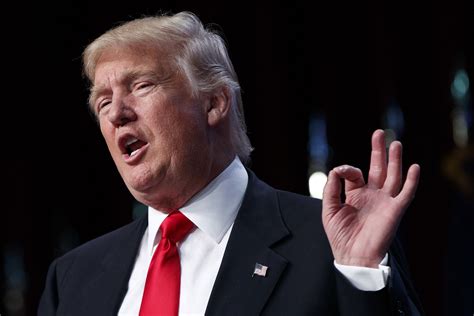May 22nd & 23rd 2023
Today’s Topics
$14 Trillion Reparations Bill
George Soros
Trump’s 2025 Vision
US Following Netherlands
Geo-engineering
$14 Trillion Reparations Bill

The proposed legislation put forth by Missouri Democratic Rep. Cori Bush, calling for $14 trillion in reparations for Black Americans, has generated significant scepticism from those who hold alternative perspectives. While acknowledging the historical injustices of slavery, critics argue against the feasibility and effectiveness of implementing such a massive reparations program. Opponents of the reparations proposal raise concerns about the practicality of providing compensation after such a significant amount of time has passed since the era of slavery. They question the fairness of holding present generations responsible for the actions of their ancestors, suggesting that it may not be the most equitable approach. Moreover, critics argue that the financial burden of implementing such a large-scale reparations program would ultimately fall on taxpayers and could potentially have adverse effects on the economy. In addition to these concerns, critics highlight the potentially divisive nature of the reparations debate. They contend that focusing on monetary compensation may perpetuate a sense of victimhood and hinder efforts toward fostering unity and equality. Instead, they advocate for policies that prioritise equal opportunity for all individuals, regardless of their racial background, as a more effective means of addressing racial disparities. Furthermore, critics question the efficacy of reparations in addressing the root causes of socioeconomic gaps. They argue that factors such as individual choices, education, and family structure play significant roles in perpetuating disparities, suggesting that a multifaceted approach that includes investment in education, job training, and economic development would be more impactful in addressing these issues. Opponents of the proposed reparations legislation emphasise the need to find alternative solutions that empower individuals and promote equal opportunity, rather than relying solely on monetary reparations. By addressing the underlying causes of inequality, they argue, society can work towards a more just and equitable future for all.
George Soros

The Institute for Strategic Dialogue, partly funded by left-wing billionaire George Soros’ Open Society Foundation, released a policy paper accusing Elon Musk of promoting hate speech on Twitter. Conservatives express skepticism towards the paper, highlighting concerns about its methodology and political biases. Critics argue that categorising criticism of Soros as anti-Semitic aims to stifle legitimate scrutiny of his actions and suppress free speech. They question the paper’s credibility, given Soros’ well-known progressive agenda and his use of shell companies to fund his political allies. Furthermore, conservatives point out flaws in the study’s methodology. By employing a search engine-like function, the paper may have inflated the number of alleged anti-Semitic tweets, failing to differentiate between valid criticism and actual instances of hate speech. Conservatives also emphasise the paper’s disregard for legitimate concerns about Soros’s influence on politics and law enforcement. Funding district attorneys known for being lenient on crime raises questions about the impact on public safety and the rule of law. In summary, conservatives raise doubts about the credibility, methodology, and political biases of the Institute for Strategic Dialogue’s policy paper. They advocate for distinguishing valid criticism from true anti-Semitism, safeguarding free speech, and promoting open debate when scrutinising influential figures like George Soros.
Trump’s 2025 Vision

Former President Trump’s second-term governing plans have raised concerns among conservatives due to their potential to expand federal power, particularly in the presidency. Critics argue that Trump’s vision entails a significant increase in control over various aspects of American life. Trump’s proposals include controversial actions such as pardoning the Jan. 6 rioters, which would undermine the ongoing investigation by the Justice Department. Additionally, his desire to grant the president the authority to hire and fire federal workers at will is seen as a way to remove officials deemed disloyal or critical of his conduct. In the realm of education, Trump seeks to exert more federal control by firing “radical left” officials who accredit universities and eliminating diversity and inclusion programs. He also aims to reshape law enforcement and intelligence agencies, expressing a desire to remove “Marxist prosecutors” and establish an auditing system to prevent spying on American citizens. Trump’s plans extend to gender issues, with a call for investigations into pharmaceutical companies and hospitals regarding the long-term effects of sex transitions. He also intends to use the US military to combat drug cartels and street crime. Conservatives have reservations about Trump’s proposals as they perceive them to be an unprecedented power grab by the executive branch, influenced by far-right conservatism and personal grievances. While some of Trump’s ideas lack specific implementation details, critics warn that they could undermine the principles of democracy and the balance of power.
US Following Netherlands

Climate czar John Kerry is pushing for a crackdown on farming in the United States, claiming that small farms are significant contributors to nitrogen emissions and must be reduced to meet the goals of the radical green agenda set by the World Economic Forum and the United Nations. Kerry insists that addressing agricultural emissions is crucial in tackling climate change. However, his approach neglects the essential role of the agriculture industry in providing sustenance for the world’s population. This anti-farming sentiment is not limited to the US, as the Netherlands and the European Union have also implemented measures to seize farmland and force farmers to vacate their lands under the guise of combating climate change. These actions align with the global environmental agenda promoted by the World Economic Forum.
Geo-engineering

Nobel laureate Dr. John F. Clauser has criticised the climate emergency narrative, calling it a “dangerous corruption of science” that threatens the world’s economy and the well-being of billions of people. He disagrees with the awarding of the 2021 Nobel Prize for work in the development of computer models predicting global warming. He argues that an informed discussion about CO2 would recognise its importance in sustaining plant life. Dr. Clauser criticises climate models for being unreliable and not accounting for the temperature-stabilising feedback of clouds, which he believes is more powerful than the warming effect of CO2. According to Dr. Clauser, bright white clouds produced by the evaporation of seawater by sunlight reflect sunlight energy back into space, providing a natural thermostat that regulates the Earth’s temperature with a powerful negative feedback effect. He asserts that this temperature-regulating effect is more than fifty times stronger than the warming effect of CO2. He criticises the Intergovernmental Panel on Climate Change (IPCC) and the National Academy of Sciences for misunderstanding the effects of clouds and ignoring their dominating energy transport process. On the other hand, the 2023 report from the IPCC calls for countries to ramp up their pledges to lower greenhouse gas emissions to reduce global emissions by 60 percent by 2035. Meanwhile, the US government has initiated a five-year outline for research into “climate interventions,” including solar geoengineering, which involves deflecting the sun’s rays to mitigate rising temperatures. However, this idea is controversial, and many scientists oppose such steps, fearing unknown ramifications and unintended consequences.
While there is no international governance around solar geoengineering, critics worry that unilateral action to alter the climate could spark conflicts and disruption of weather patterns. Some researchers believe more understanding of these techniques is necessary, while opponents argue that solar geoengineering could distract from mitigation efforts and exacerbate existing inequalities caused by climate change. The debate over whether and how much we should interfere with the climate is expected to intensify as the effects of global heating worsen.
Sources
$14 Trillion Reparations Bill
- https://abcnews.go.com/Politics/rep-cori-bush-14-trillion-reparations-bill-eliminate/story?id=99390652
- https://www.foxnews.com/politics/cori-bushs-14-trillion-reparations-proposal-equal-nearly-7-afghanistan-wars-spending
- https://www.npr.org/2023/05/17/1176753190/rep-cori-bush-introduces-bill-on-reparations-for-black-americans
- https://news.yahoo.com/cori-bush-introduces-14-trillion-163026740.html
George Soros
Trump’s 2025 Vision
US Following Netherlands
Geo-engineering
- https://gript.ie/nobel-laureate-climate-science-has-metastasized-into-massive-shock-journalistic-pseudoscience/?utm_source=substack&utm_medium=email
- https://www.theguardian.com/environment/2022/dec/25/can-controversial-geoengineering-fix-climate-crisis
- https://www.vice.com/en/article/3adxg3/solar-geoengineering-only-option-to-cool-planet-within-years-un-says




